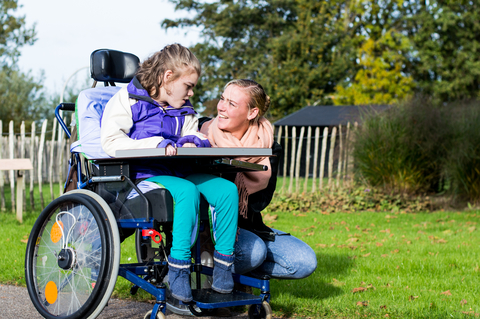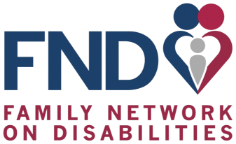People with disabilities need help with their healthcare, education, finances, and moving into adulthood. Bookmark this resource page, as this is where you’ll find links to the programs, services, and information that will help people with disabilities – and the families that care for them — get the help they need to live fulfilling lives.
Resources for Adults With Disabilities
When you’re looking for information about adults with disabilities, FND has created or linked to a number of resource pages. For this section, we’ve highlighted those we think will have the widest appeal.
Making the transition from youth to adulthood. This Social Security Administration page is part of its Red Book resources, and offers direction on:
- Job openings
- Career assistance
- How to manage and save your money
- Social services like childcare, housing, legal services, and transportation
The FDIC has a Youth Employment Resource Center, where you can help your child can learn skills that will serve them well into adulthood, including:
- How to open a bank account
- Creating a budget
- Saving for college
As you shop for a bank, use this FDIC banking checklist.
We’ve also gathered many education resources for those moving into adulthood. Some of these are for employers and how they can support employees with disabilities, but there are others helpful to those with disabilities and their families.
Find out what you need to know about your Supplemental Security Income (SSI) when you turn 18:
If you’re new to the world of adult services for people with disabilities, we’ve created this explainer page, where we link to pages that explain:
- Vocational Rehabilitation Agency.
- Service agencies that help people with intellectual disabilities or mental health concerns
- Independent living centers.
- Other people to consider involving in transition planning.
Looking for a job? Learn how to find a federal job as someone with a disability.
Healthcare Resources
Having access to quality care is essential for most anyone with a disability. Fortunately, there are resources available to provide this care and essential information.
Family Support, Training, Assistance, and Resources (Family STAR) is the Family-to-Family Health Information Center (F2F HRC) of Florida. Learn about its purpose.
Florida’s Children’s Medical Services Managed Care Plan (CMS Plan) provides children with special healthcare needs a family-centered, comprehensive, and coordinated system of care.
This program serves children under age 21 whose chronic physical or developmental disabilities require preventive and ongoing care.
- Eligibility Requirements
- Must meet medical financial requirements
- Under the age of 21
- Must meet CMS physical screening requirements or have a physician attest to the child’s qualifying condition. To request a physical screening, please contact your local CMS office. You may ask for one at any time.
How to create a personal healthcare plan
There are seven steps to creating a personal healthcare plan for a child with special needs:
- Contact past doctors and ask what health information you need for your personal health plan.
- Ask for an authorization form for release of medical records.
- Organize the papers chronologically
- Transfer electronic information to a stored device
- Bring the PHR to all health care visits
- Create and carry a card or medical alert bracelet or necklace
- The PHR is private information so remember to keep it confidential
Our goal in sharing these resources is for families to be effective partners in healthcare decision-making at all levels and report satisfaction with the services they receive.
Learning Resources
Students with disabilities often need personalized education, the kind that allows them to receive a customized learning experience so they can reach their full potential.
Find out what the top education experts say about personalized learning so that you can take an active role in your child’s education. Valuable information includes:
Never heard of an IEP or a 504 plan? Get a quick primer at our recent overview of Special Education Services.
Here is a convenient side-by-side comparison of the purposes and benefits of the Individuals With Disabilities Education Act (IDEA) and Section 504 of the Rehabilitation Act of 1973. Both are designed to help the education experience for people with disabilities.
Learn how you can support and educate a child with autism spectrum disorder. If you have the time and interest, take a deeper dive into how educators approach teaching children with autism and discover evidence-based practices for successful instruction.
Keep in mind that there are dedicated groups throughout Florida that are devoted to advocating for your child’s education, healthcare, and financial security.
Special Needs Trusts
People with disabilities need financial guidance that is caring, competent, and transparent. That’s why we offer our FND Trust Services. Our services include four types of trusts including:
- National Pooled Trust
- Individual Special Needs Trust
- Family Pooled Trust
- Settlement Protection Trust
With each of these services, our goal is to make sure you have access to the funds you need, when you need them. Learn more about special needs planning and how each of the four trusts work.











